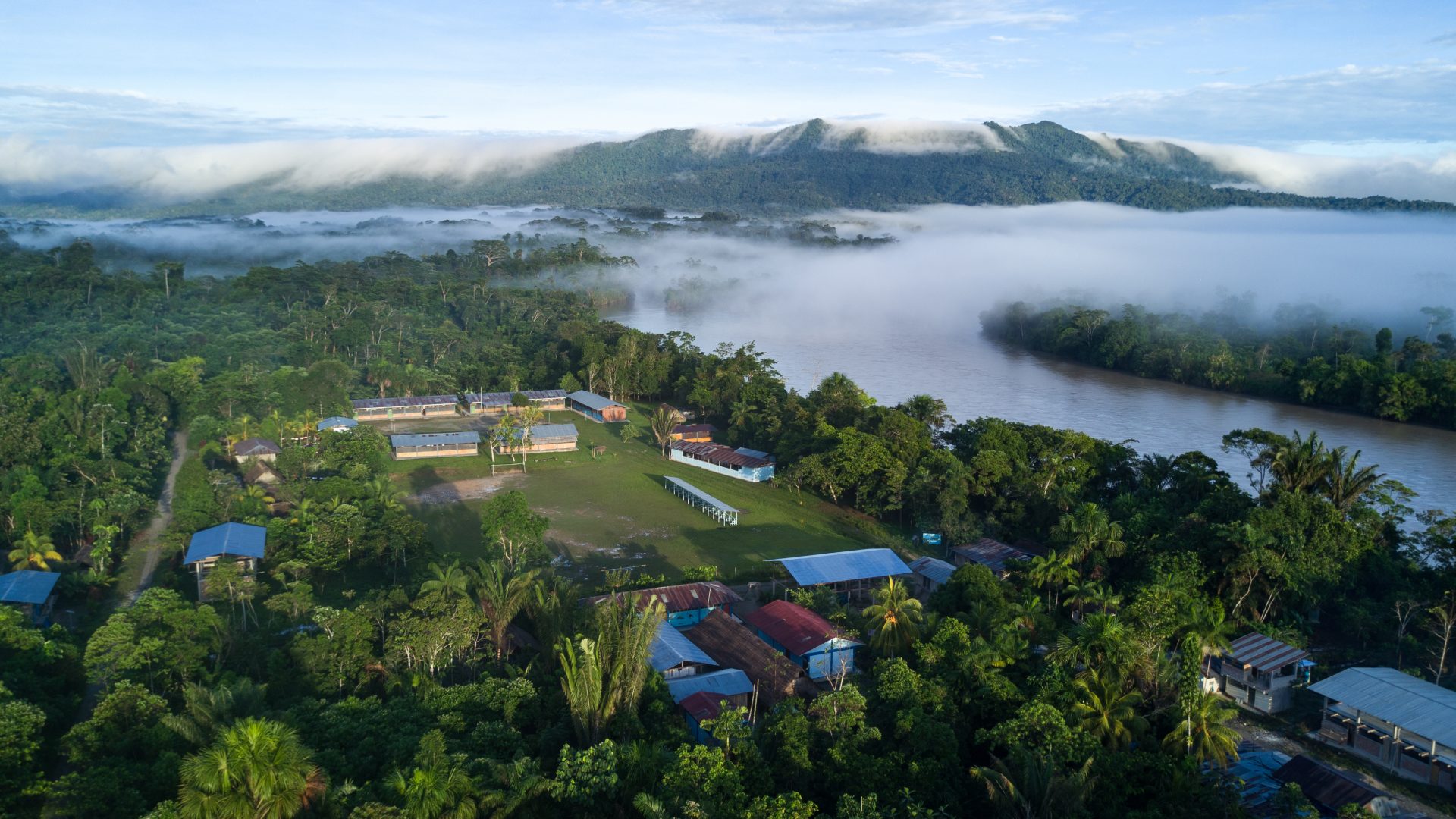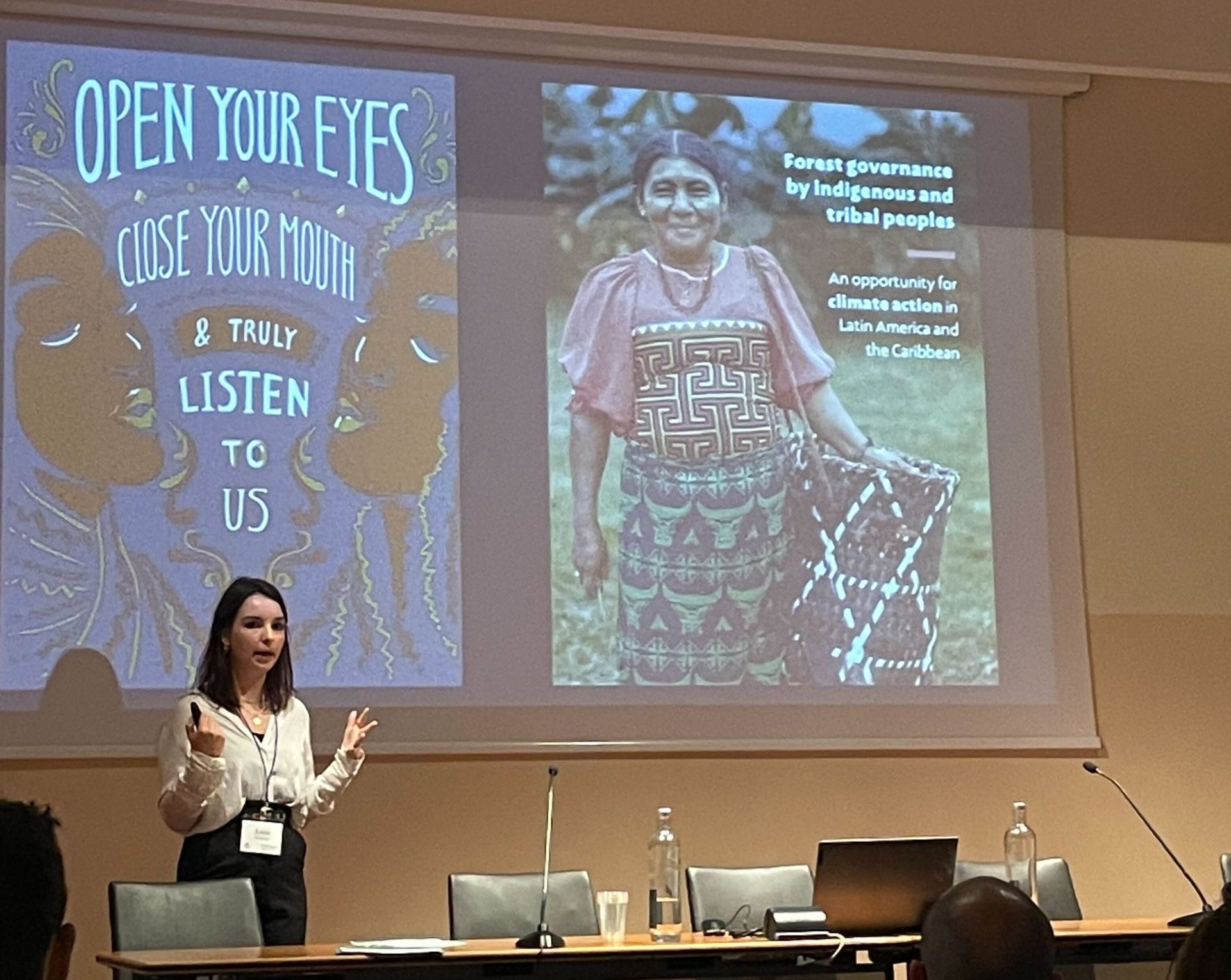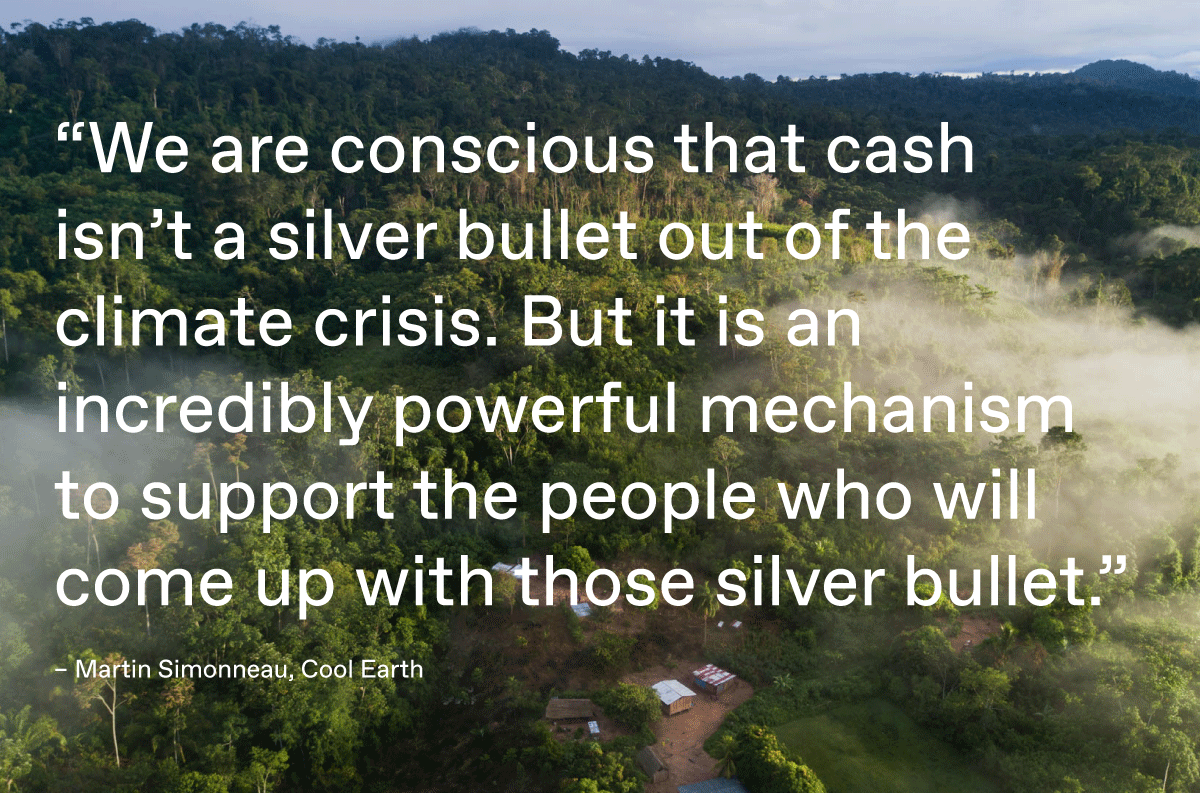
Cool Earth at FLARE 2022
At the beginning of October (7th-10th), Cool Earth attended the Forests & Livelihoods: Assessment, Research, and Engagement (FLARE) Network’s 8th Annual Meeting.
Organisations such as the Center for International Forestry Research (CIFOR), Rights & Resources Initiative (RRI), the National Organisation of Andean and Amazonian Women of Peru (ONAMIAP), WWF, the Ford Foundation and many academic institutions from around the world gathered in the Italian capital to present recently produced research and engage in new and exciting collaborations.
We expanded on the importance of Indigenous knowledge, locally-led approaches to project design and our determination to launch the first basic income pilot for people who live in the rainforest.
The ensuing conversations with conference participants gave us plenty more food for thought.


Léna Prouchet presenting at FLARE on ‘Adapting productive projects to local contexts to ensure sustainable positive impact on forests and livelihoods’.
Our five key takeaways
1. We’ve worked with and learned from Indigenous peoples and local communities for over 15 years. We were extremely lucky to hear what Melania Canales Poma, who only just left the presidency of the National Organisation of Andean and Amazonian Women of Peru (ONAMIAP), had to say about the role they play in defending forests, fighting climate change and empowering women. Most importantly, we met with her face-to-face every day to hear more about the long-term support they need to keep fending off threats to their livelihoods.
2. We’ve known this for a long time. The US$ 1.7bn pledged to protect forests until 2030 at COP26 in Glasgow last year is a drop in the ocean in terms of what’s needed to support the needs and priorities of Indigenous peoples and local communities. One panelist on the opening day of the conference suggested that a realistic amount should be in the range of US$ 1bn each year and we completely agree.
3. Where are Indigenous and local knowledge, practice and subtleties in academic circles? Greater efforts among conservation and climate researchers must be made to be more inclusive.
4. Our presentation on why unconditionality and long-term commitments in cash transfer programmes are essential for both people and planet was one of the few that offered a practical approach to scaling efforts and making funding accessible.
5. More funding doesn’t necessarily mean success. As Melania Canales Poma pointed out, equitable mechanisms and protocols must be put in place so that funding is fairly distributed to avoid competition among indigenous organisations, individuals and geographic locations. And that’s where we come in with unconditional cash payments to rainforest villages.


